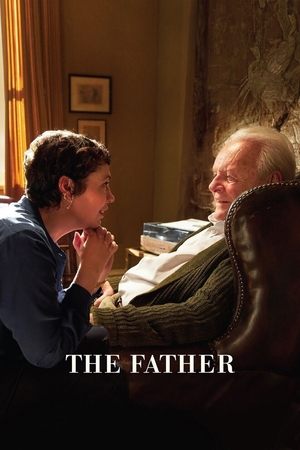
The Father
Anthony Hopkins's performance in The Father is bulletproof. This is fortunate, because he encounters what the military calls 'friendly fire' resulting from a baffling decision by co-writer/director Florian Zeller, who has a couple of characters played each by two different sets of actors. Thus Anne, Hopkins’s character’s (also named Anthony) daughter is played by Olivia Williams and Olivia Colman (who at least share some physical resemblance), while Anne's (ex)husband Paul is played by Rufus Sewell and Mark Gattis (who are like day and night). No wonder Anthony is so confused – as are we. There are certainly precedents for this type of casting, the most famous of which is That Obscure Object of Desire, in which Luis Buñuel alternates the role of Conchita between Carole Bouquet and Ángela Molina – but then Buñuel was a prankster, whereas The Father's theme of senile dementia is very serious and deserves to be treated accordingly. Now, I’m aware that it’s only natural for Anthony to think that his nurse is also his daughter, but the source of his confusion should be that the person he believes to be his daughter behaves like a nurse, and not the other way around. It would make more sense, comparatively, for Colman to play Anne and the nurse, and for Williams to only play the nurse, but not Anne. On the other hand, it doesn't make sense that the first time Anthony fails to recognize Anne we can't recognize her either, because then we think there’s something fishy going on. It would be far more dramatically effective if the actress Anthony doesn't recognize as his daughter is the one and only whom we identify as Anne. The protagonists turmoil is internal, and it’s Hopkins's duty to externalize it – of which the actor does a flawless job. The film's mise-en-scène works better to convey Anthony's cognitive impairment but, again, it is the character's mental feng shui, or lack thereof, that interests us, and which Hopkins expresses unequivocally through a masterful combination of oral and body language. It’s not that he's the best part of the movie; he is the movie. Hopkins puts on the proverbial clinic; his is a heartbreakingly beautiful performance, a veritable emotional roller coaster with sudden highs and unexpected lows. The Briton’s acting is all the more impressive because he makes it look easy – I mean, like Brando easy. And yet, it's as if Zeller doesn't quite trust Hopkins to make his vision a reality, hence all the visual gimmickry that hurts more than it helps (to paraphrase Jorge Luis Borges, saying something too much is as bad as not saying it). This is most unfortunate because Hopkins's talent for storytelling remains as powerful as ever – perhaps even more so.
